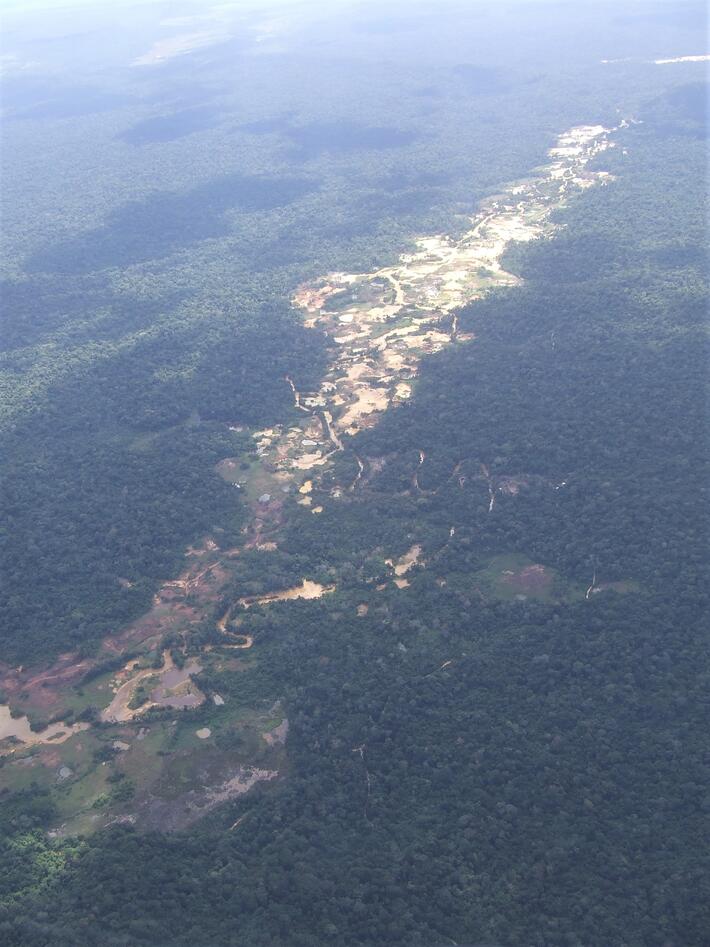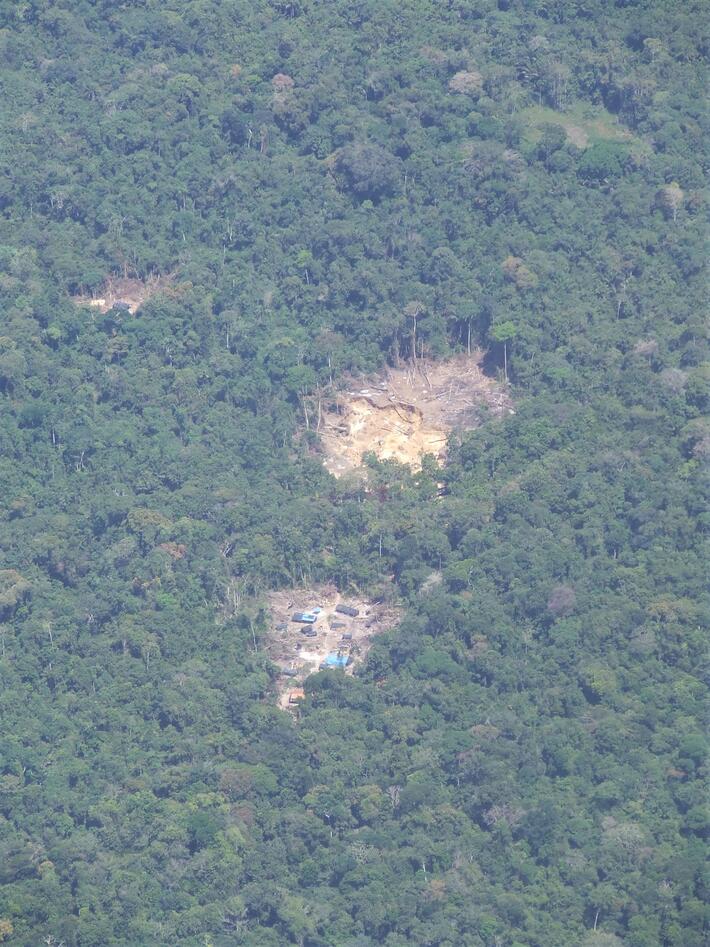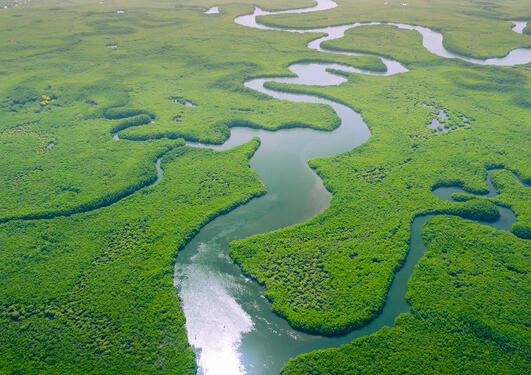Human impacts outpace natural processes in the Amazon
A new review in Science reveals the quick and accumulating impacts of humans in the Amazon – and nature will likely not be able to keep up. This new paper developed by CESAM member Suzette Flantua reveals the magnitude of the drivers of deforestation and degradation in the Amazon and lists the transformative policy actions needed to safeguard the region and consequently global climate.

Main content
The Amazon is changing and is doing so much quicker than previously thought. The accumulating impact of land-use changes, water-use changes (e.g. damming), climate change, overhunting, illegal mining and more are making a dangerous cocktail. And this could have catastrophic consequences for the global climate system, writes a UN panel of leading scientists on 27 January in Science. Suzette Flantua is one of them. “Over the course of just a few decades, we are witnessing the staggering effect of anthropogenic changes affecting millions of km2 of natural ecosystems, and we conclude that at this pace natural ecosystems and local communities will unlikely be able to adjust”.
The Amazon concentrates at least 10% of all known species on our planet and has crucial functions for the Earth's biodiversity, climate and hydrology. Also, about one-sixth of all biomass on Earth is produced in the region. This makes the ecosystem of great importance for the storage of carbon. But in recent decades, forests have been cleared at an increasing rate for agriculture and industries such as the extraction of gold, oil and gas, which often leave surface waters highly contaminated. In the past 4 years in particular, deforestation has increased rapidly. By 2019, ca. 17% of Amazon forest has already been cleared and ca. 14% replaced for pasture and crops.
Global change ecologist Suzette Flantua from the Department of Biological Sciences is member of the “Science Panel for the Amazon”, an initiative set up by the United Nations in which 240 researchers from twenty countries participated. In 2021, a report with 34 chapters was published in which Flantua contributed to the chapter reviewing the deep-time history of the Amazon. It is the most updated and comprehensive resource now available on the Amazon system as a whole. Thanks to this report, the authors could compare the rate of natural processes, related to geology and climate, with anthropogenic processes, and published their findings in the renowned journal Science.
“Our main worry is that Amazonian species, peoples, and ecosystems are being outpaced, while we are heading for a degraded and transformed landscape. And we are already seeing regional changes in climate (warming and drying) that are worrying. But political willingness and global actions can change this course. Our review provides policy recommendations that are urgently needed to stop destruction”, states Flantua. Highest priority is to accelerate the ongoing transformation to a post-carbon global economy.
The review published by Flantua and her colleagues follows up on another publication from last year in which another group of scientists propose ways to turn the tide for the Amazon. According to them, it is important to take immediate actions to protect the remaining forest through supervision and strict control of illegal logging and environmental destruction, and to safeguard the partly destroyed or recovering forest, so that it can grow back in a natural way. Though this will certainly take quite some time to recover. Involvement and protection of local communities is crucial, the publication emphasizes.
“We hope that the world leaders will take notice of the many warning signs we have detected and that with the recent political change in Brazil, transformative policy actions will be implemented and maintained. And it’s good that also here in Norway, we are leading research in protecting and understanding better the Amazon region”.
The article 'Human impacts outpace natural processes in the Amazon' by James S. Albert, Ana C. Carnaval, Suzette G. A. Flantua, Lúcia G. Lohmann, Camila C. Ribas, Douglas Riff, Juan D. Carrillo, Ying Fan, Jorge J. P. Figueiredo, Juan M. Guayasamin, Carina Hoorn, Gustavo H. de Melo, Nathália Nascimento, Carlos A. Quesada, Carmen Ulloa Ulloa, Pedro Val, Julia Arieira, Andrea C. Encalada, Carlos A. Nobre' appeared on January 27, 2023 in Science.


